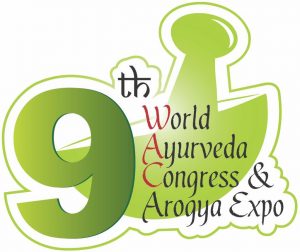
Ayurveda must increasingly accommodate innovative designs to introduce modern tools that meet global quality standards so as to improve the treatment procedures under the ancient wellness system, experts said at an international health meet today.
All the same, integrated medicine must not dilute the fundamentals of India’s time-tested practices that go for a holistic approach to the body and soul, speakers noted at a plenary session of the 9th World Ayurveda Congress (WAC) in this city.
Ayurveda is open to novel ideas, thusenabling constant update of the tradition andits cateringto contemporary requirements, a five-member panel reiterated during their presentations on ‘New Age Prospects’ at the four-day WACconcluding this Sunday.
Dr Sumer Singh of IIT-Delhi emphasised on the successful conversion of cutting-edge technologies into saleable products in a competitive world. “Several brilliant ideas fade away at the prototype stage. A chunk of those which manage to go further fail at the trial-and-error phase. Eventually, very few make it to the market and stay popular for long,” he told the gathering at the WAC being organised by World Ayurveda Foundation (an initiative of VijnanaBharati) with support from the Union Ministry of Ayushand the Government of Goa.
India needs more design institutions for the benefit of its ancient wellness systems, the speaker said in his power-point presentation on ‘Technological Dimensions’ that cited design-driven equipment such as herbal fumigator and an automated machine aiding Bastitechnique which purifies the human intestine.
Dr G.G. Gangadharan, who is Director of Bengaluru-based Ramaiah Ayurveda Hospital, said integrated medicine should ideally facilitate complementarity of systems. “Instead, we often see dominant sciences suppressing Ayurveda. That is bad,” he noted. “We should not dilute our principles in the name of promoting integrated medicine.”
Recalling that Ayurveda is the world’s “oldest and biggest” among surviving medical systems, the speaker said, “We must not let its values get misappropriated by global forces”.
DrRangeshParamesh, Head (Drug Discovery) at Himalaya Wellness Company,said Ayurvedic medicines should focus on versatility as much as quality while ensuring abundant nutrition and appropriate quantity of intake. “Concepts about herbs vary from country-wise. Green tea, for instance, is a health supplement in the US, while it is medicine in Australia,” he added.
Dr Pradeep Dua, Joint Director of Bureau of Indian Standards, said the country is poised for publication of 100 papers on quality certification by this year-end. “Standarisation of products not only guarantees consumer safety; it augments international trade,” he pointed out.
All India Institute of Ayurveda Director (AIIA) Prof TanujaNesari, as chair, spoke of the prospect of Ayurveda graduating to the status of a no-medicine system if its health prescriptions on daily food intake found widespread following.DrS. Rajagopala of AIIA moderated the 75-minute session.
The December 8-11 WAC chiefly seeks to chart out a roadmap leading to globalisation of Ayurveda and harness its potential as a scientific and prevention-oriented healthcare system.





